THEIR GREATEST FEAR

HALF-FULL REPORT 05/09/25
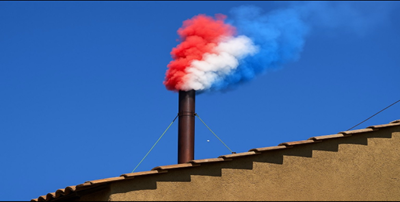 The Yankees Beat the Padres,
The Return of Moral Clarity, and The Gathering Storm
The Yankees Beat the Padres,
The Return of Moral Clarity, and The Gathering Storm
Mother’s Day is Sunday, May 11. Happy Mother's Day to the women who raise warriors, build nations, and love without limits. Your strength shapes the world.
The world just got a little more serious. From the Vatican to the South China Sea, the old guard is waking up.
In Rome, a member of the Augustinian Order from Chicago, Cardinal Robert Prevost, educated at Villanova University, is now Pope Leo XIV. Not a bureaucrat. Not a compromise candidate. A theologian forged in virtue ethics and raised in the ruins of a collapsing republic. Think Augustine with a passport and a spine. He wasn’t elected to make peace with the culture. He was elected to call it to judgment.
Gregorian chant is making a comeback, not as nostalgia but as spiritual warfare. The new pope doesn’t believe in neutrality. He sees the City of God and the City of Man, and he has already chosen sides. Don’t be surprised when he names the CCP as a spiritual evil. Don’t be surprised if he calls for Vatican III to clarify doctrine, fortify the faithful, and draw the line against totalitarian lies.
Meanwhile, the old Axis of Evil is back only this time with better branding. China just struck oil in stolen waters and is using it to bankroll its assault on the U.S.-led order. Their buddies in Moscow and Tehran are watching their influence slip as Beijing builds energy independence and flexes power.
India and Pakistan are once again toeing the edge of nuclear conflict, with Kashmir as the eternal fuse. And in the West? America and the U.K. finally remembered how to shake hands with a trade deal that might just mean something if we can keep our moral footing.
This isn’t business as usual. This is a spiritual, moral, and geopolitical reckoning. The Yankees beat the Padres, but the real game’s just starting. And this time, it’s for keeps.
Stay tuned. The world just hit chapter one of a new book.
THE SUPERTREE GARDEN
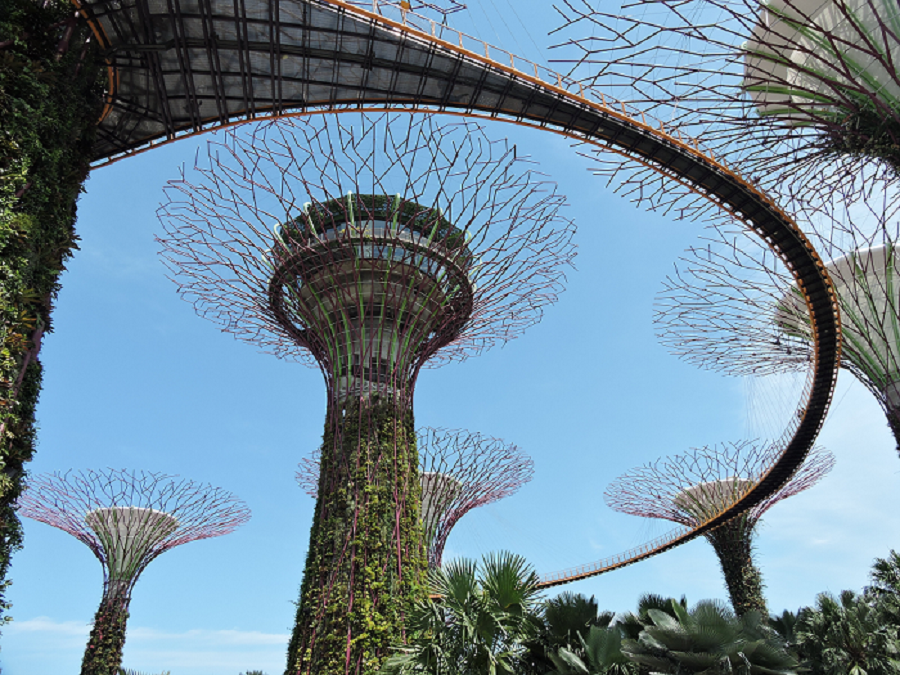 The world’s most spectacular nature park is the 130-acre Gardens by the Bay in Singapore. In the gigantic greenhouse of the Flower Dome, virtually every rare flower on earth flourishes in abundance, while the Cloud Forest is a wonderland of tropical waterfalls seemingly falling out of the sky high above.
The world’s most spectacular nature park is the 130-acre Gardens by the Bay in Singapore. In the gigantic greenhouse of the Flower Dome, virtually every rare flower on earth flourishes in abundance, while the Cloud Forest is a wonderland of tropical waterfalls seemingly falling out of the sky high above.
Dominating the park are the 160-foot high Supertrees, towering vertical gardens covered in orchids, ferns, vines, and exotic plants. There are elevated canopies and walkways between them. Exploring the astonishing display of hi-tech botanical artistry and genius that is Gardens by the Bay is absolutely awe-inspiring.
TTPer Cassowary was kind enough to guide me through the park as Singapore is his home. (Glimpses of Our Breathtaking World #102 photo ©Jack Weeler)
GETTING A YOUNGER BRAIN
That’s why we’re listening to one of the greatest geniuses of modern times, Richard Feynman. One of the secrets to his genius is that, all his life, he kept the curiosity we all have as a child.
That was when, for all of us, the world was as young as we were. Remember? Everything was new, and fascinating, we were endlessly curious, we wanted to know why and asked questions about all sorts of stuff.
Remember how time went by much slower when you were young – and how you’ve noticed that the older you get, the faster time goes by?
There’s a scene in the movie On Golden Pond starring Henry Fonda and Katherine Hepburn where they are celebrating the 80th birthday of Fonda’s character. “What’s it like to be 80?” he’s asked. He answers, “I’m surprised it got here so fast!”
Let’s not do that. Let’s have time slow down, and recapture our curiosity of youth – by having our brain grow physically younger. We’ll do that in a small place in our brain that’s Greek for “seahorse.”
Yes, we’re going to talk about getting younger with hippocampal neurogenesis.
A CONFRONTATION WITH THE ROGUE JUDICIARY
 Revolutions rarely spring into action without notice. The American Revolution was many years in the making. The Boston Massacre occurred in 1773, not 1776. Many of the longstanding oppressive measures that drove the colonists to revolt in 1776 are catalogued in the Declaration of Independence. As onerous as they were, yet only when the oppression was no longer “sufferable” were the people driven to their last recourse: revolution.
Revolutions rarely spring into action without notice. The American Revolution was many years in the making. The Boston Massacre occurred in 1773, not 1776. Many of the longstanding oppressive measures that drove the colonists to revolt in 1776 are catalogued in the Declaration of Independence. As onerous as they were, yet only when the oppression was no longer “sufferable” were the people driven to their last recourse: revolution.
President Trump has been besieged by federal, state, and local judges, even during his campaign. New York State issued what amounts to a bill of attainder against him, not only crafting a special application of law, in which there were no victims, and designed to prosecute only him, but also assigning to a judge the role of real estate assessor, with the threat of imprisonment in a notorious state penitentiary. This case, among others, was widely seen as clearly intended only to prevent the re-election of Donald Trump.
A different sort of revolution has been building up in the United States, against a different kind of tyranny: the tyranny of radical leftist judges. It was only a matter of time before there was outright defiance of those judges. In one case, federal judge Boasberg complained that his order to turn around deportation airplanes already in flight was ignored.
Now there has been an escalation in that buildup.
THE GOLDEN MADRASA
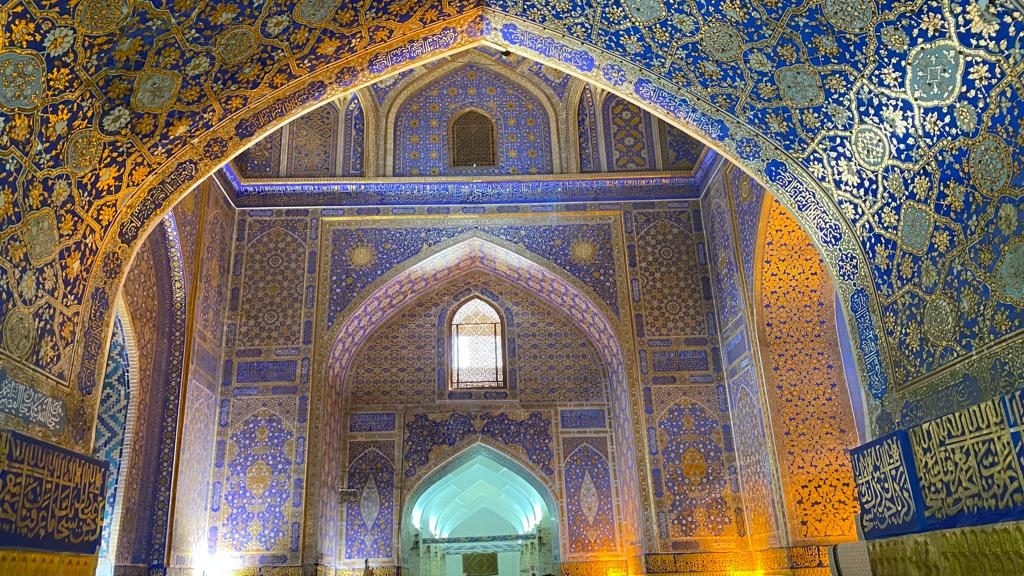 The Golden Madrasa or College of Tilla-Kori was built by Samarkand ruler Yalangtush Bakhadur in the 1650s to house and teach the best and brightest students of his realm. It stands at the center of the wondrous Registan public square complex of the Silk Road oasis city of Samarkand, known to the ancient Greeks as Marakanda.
The Golden Madrasa or College of Tilla-Kori was built by Samarkand ruler Yalangtush Bakhadur in the 1650s to house and teach the best and brightest students of his realm. It stands at the center of the wondrous Registan public square complex of the Silk Road oasis city of Samarkand, known to the ancient Greeks as Marakanda.
It was centuries old when Alexander conquered it in 329 BC. For a thousand years as Central Asia’s great entrepot on the Silk Road between China and the Mediterranean, it was a cosmopolitan center for Hinduism, Buddhism, Judaism, Zoroastrianism, and Nestorian Christianity. Incorporated into the Islamic world in the 700s, sacked by Genghiz Khan in 1220, rebuilt by the time Marco Polo in 1272 described it as “a large and splendid city,” Tamerlane made it his capital in 1370.
I was first in Samarkand to stand astonished at the Registan in 1963. Seeing it now, far more impressively preserved than in the Soviet days, made me gasp – especially how Tilla-Kori is once again lavishly decorated with gold. You’ll gasp too should you ever be fortunate enough to come here. (Glimpses of Our Breathtaking World #223 photo ©Jack Wheeler)
WHITE HOUSE CHIEF OF STAFF SUES CHIEF JUSTICE OF THE SUPREME COURT
 [Stephen Miller is the founder of America First Legal and is currently Chief of Staff of the Trump White House.]
[Stephen Miller is the founder of America First Legal and is currently Chief of Staff of the Trump White House.]
Stephen Miller’s America First Legal (AFL) has filed a bombshell lawsuit against Chief Justice John G. Roberts, Jr., in his capacity as Presiding Officer of the Judicial Conference of the United States, and Robert J. Conrad, Director of the Administrative Office of the U.S. Courts.
The lawsuit accuses the powerful duo of running what AFL describes as an “unconstitutional shadow agency” and violating federal transparency laws.
The lawsuit, filed on April 22, slams the Judicial Conference of the United States and its administrative arm—both overseen by Chief Justice Roberts—as rogue “executive agencies” that have collaborated with far-left lawmakers to wage lawfare against conservative Supreme Court justices.
According to the lawsuit viewed by The Gateway Pundit:
HOW GROUPS BRING OUT THE BEST IN PEOPLE… AND THE WORST
“Like I always say, there's no "I" in team. There's a "me" though, if you jumble it up.”
- Hugh Laurie as Dr. Gregory House
 One of the essential qualities that makes us human is the way that we work together in groups. Understanding how to bring out our best within a group can make the difference between success or failure, personally, professionally, and financially.
One of the essential qualities that makes us human is the way that we work together in groups. Understanding how to bring out our best within a group can make the difference between success or failure, personally, professionally, and financially.
You see it in sports teams, in musical groups, in work groups… when highly skilled individuals bring their best, and cooperate with each other, they create a level of excellence that’s unparalleled.
One player is a great shooter, another is exceptional at defense, another sets up plays, another, though not exceptional at any one thing, is uncanny in his ability to get the team to work together and connect well.
You also see the downside when an individual, no matter how skilled they are, can’t or won’t work together for the good of the group as a whole. One prima dona who hogs the ball, or a virtuoso soloist who has no emotional connection with his bandmates.
But the most common negative is when members of a group merge into a single blob, undifferentiated, following the momentum of wherever the group happens to be heading. Nobody stands out, nobody brings their unique talents and abilities, they all ooze together like a bland smoothie of humanity.
THE STONE TURTLE OF GENGHIS KHAN
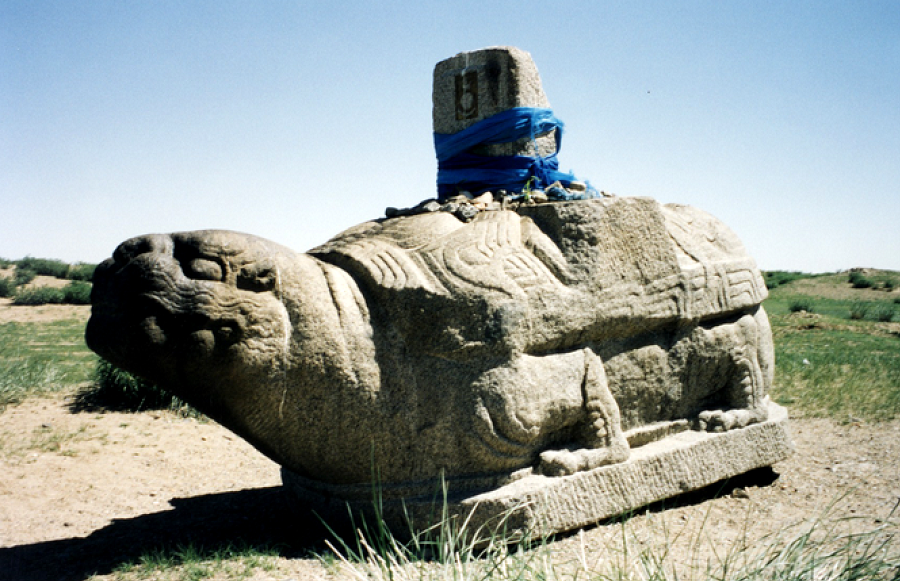 800 hundred years ago in 1221, Genghis Khan established the capital of the Mongol Empire he created at a place called Karakorum in the grasslands of central Mongolia. It became a city of palaces, temples, and mansions of the Mongol nobility, a place of fabulous wealth that left Marco Polo in awe when he visited in in the 1270s.
800 hundred years ago in 1221, Genghis Khan established the capital of the Mongol Empire he created at a place called Karakorum in the grasslands of central Mongolia. It became a city of palaces, temples, and mansions of the Mongol nobility, a place of fabulous wealth that left Marco Polo in awe when he visited in in the 1270s.
When Mongol rule over China ended a hundred years later, the Chinese rulers of the Ming Dynasty ordered Karakorum razed to the ground with all evidence of its existence obliterated. All that was left was this solitary stone turtle lying in mute witness to the glories of what was here once and is no more. Known as the Stone Turtle of Genghis Khan, it’s all there is for you to try and imagine the magnificence of the past amidst what is now an empty wilderness. (Glimpses of Our Breathtaking World #149 Photo ©Jack Wheeler)
TRUMP’S PLAN FOR ALCATRAZ IS ABSOLUTE GENIUS
Donald Trump has announced that he’s reopening Alcatraz as a federal prison for the worst of the worst in America. I couldn’t be more delighted, because it’s a wonderful idea at both practical and symbolic levels.
Trump made the announcement on Truth Social:
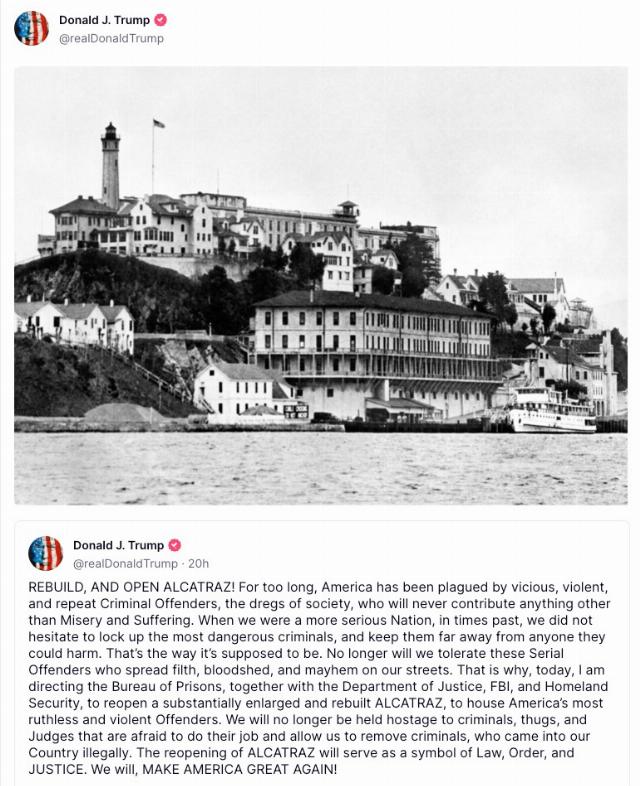
REBUILD, AND OPEN ALCATRAZ! For too long, America has been plagued by vicious, violent, and repeat Criminal Offenders, the dregs of society, who will never contribute anything other than Misery and Suffering. When we were a more serious Nation, in times past, we did not hesitate to lock up the most dangerous criminals, and keep them far away from anyone they could harm. That’s the way it’s supposed to be. No longer will we tolerate these Serial Offenders who spread filth, bloodshed, and mayhem on our streets. That is why, today, I am directing the Bureau of Prisons, together with the Department of Justice, FBI, and Homeland Security, to reopen a substantially enlarged and rebuilt ALCATRAZ, to house America’s most ruthless and violent Offenders. We will no longer be held hostage to criminals, thugs, and Judges that are afraid to do their job and allow us to remove criminals, who came into our Country illegally. The reopening of ALCATRAZ will serve as a symbol of Law, Order, and JUSTICE. We will, MAKE AMERICA GREAT AGAIN!
